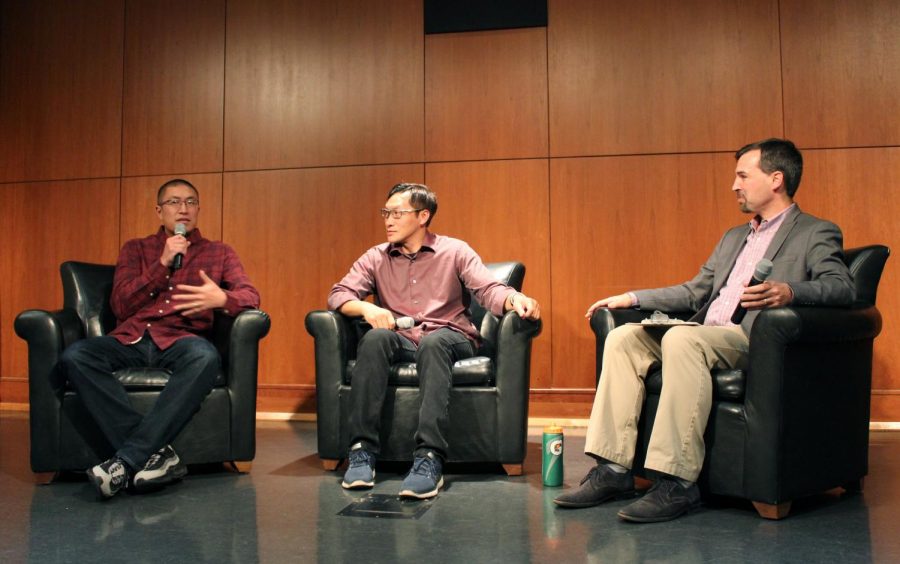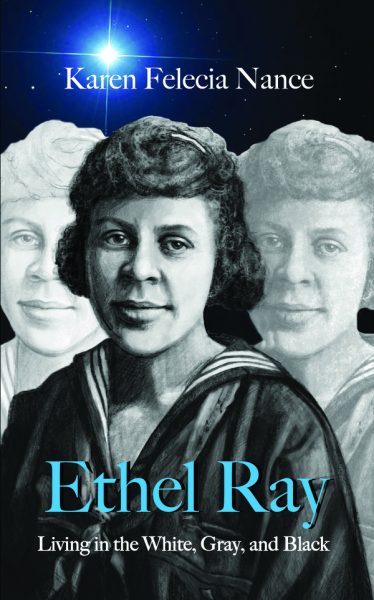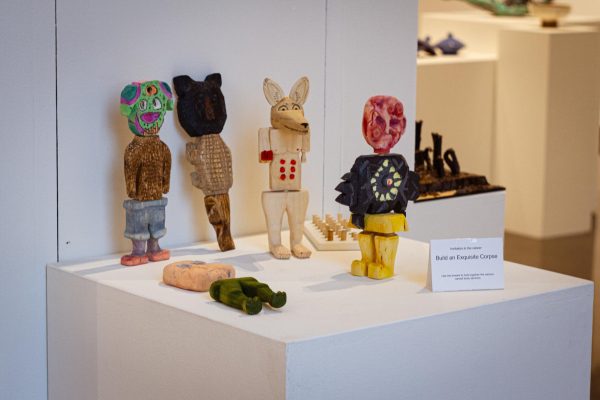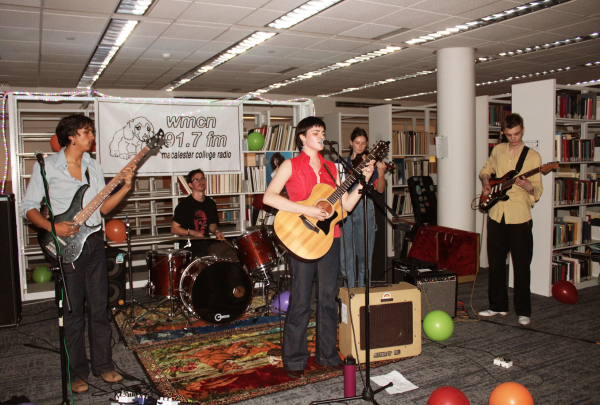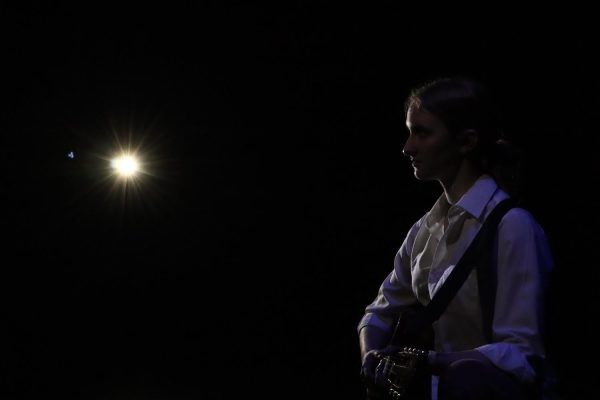IRT documentary tells Zheng’s story of incarceration and activism
Filmmaker Ben Wang, Eddy Zheng, and political science chair Paul Dosh at the International Round table screening of “Breathin’: The Eddy Zheng Story.” Photos courtesy of Kofi Annan Institute for Global Citizenship Student Staff.
October 17, 2019
“There will always gonna be struggles,” Eddy Zheng said, staring straight at the camera with passion blinking in his eyes. “The day that there [are] no more struggles is the day that I am not breathin’.”
The audience was still immersed in mixed feelings of distress, uneasiness, solace and comfort when the movie faded and the closing theme started to play. Filmmaker Ben Wang and Zheng stepped to the stage, greeting the audience with their unique way of saying hi: “Happy Breathin’.”
“Breathin’: the Eddy Zheng Story,” a documentary directed by Wang, sketches Zheng’s lifetime of struggle and transcendence. His unyielding fight over 21 years freed him physically, while reading and learning helped him reach mental freedom. As the Center for Asian American Media commentated for the trailer, it paints an intimate portrait of Zheng: the prisoner, the immigrant, the son, the activist.
The movie starts with the story of young Zheng. After immigrating to the U.S. with his family when he was 12, Zheng was not fluent in English. His parents were too busy working to support the family; thus, he struggled to adjust to society. He committed a robbery and kidnapping, resulting in 16 felony charges. Because of his family’s difficult economic situation and because they thought that pleading guilty would give him a more lenient sentence, Zheng’s family decided not to hire a lawyer and let Zheng plead guilty for all the charges. The skinny, young and inexperienced Zheng entered prison, at the age of 16. His struggle, and his transcendence, began.
Reading and writing became the fuel for Zheng’s transformation. He read books at the library from one end of the aisle to the other. He began to write poems, and later organized the first poetry slam where he was incarcerated in San Quentin State Prison in California.
“When I went in, it’s really about survival,” Zheng said. “Through that process, it forces me to learn, to learn more, to understand what people are saying and what’s going on. As I was learning how to survive, I was learning how to read and write, and it allowed me to have more self-confidence.”
From here, the movie could have turned into the cliché of a man from prison thriving after his release, which would still have been inspiring. But Wang’s production is heart-breaking and sharp as a knife. It presents more than merely hope, but also the unacceptance injustice, rejection and fetters on the way to freedom.
His family was ashamed of the idea of prison. In fact, his mother was so upset about his incarceration that she lied to his relatives, saying he was too busy studying to attend his grandparent’s funeral.
Zheng organized petitions to establish Asian cultural studies in San Quentin which got him 11 months in solitary confinement. It was the lowest point of his life, during which the only human interaction he had was when the guards handcuffed him.
He requested parole, again and again, only resulting in rejection after rejection. Despite his efforts to support his community, the judge still considered him a threat to society. These denials shattered his dreams.
“Hopes and dreams we once possessed were only lies that we tell ourselves in order to move on,” Zheng said in the movie.
His mother asked him once, “are you even gonna get out of prison?”
The last part of the film was a peaceful relief. Zheng finally regained freedom after the twelfth attempt at parole.
“The first time in my life, I kissed my dad on his cheek, I said ‘I love you, dad,’” Zheng said.
He then faced the risk of being deported back to China. It took him nine hearings before he was permitted to stay in the U.S. However, that did not stop him from being a social activist. He worked for the Community Youth Center in San Francisco, and also promoted the R.O.O.T.S. Program (Restoring Our Original True Selves), which provides Asian American studies classes in the San Quentin State Prison. As Zheng described, it not only makes the imprisoned Asian Americans learn more about their background but also go inside themselves and reflect on what they really need.
The R.O.O.T.S. Program is thriving. Zheng is married and enjoying his long-awaited freedom. He is actively involved in social justice events, promoting the idea of “embracing, internalizing and letting go” when facing conflicts. He wrote an apology letter to his victims with tears swirling in his eyes and gained their forgiveness. Although his mom still speaks to him in a stern and harsh tone, it became clear that she does not blame him anymore when she asked Zheng to bring her a grandchild.
It took Wang five years to follow Zheng and record his life to make the movie. The movie gives Zheng’s story a happy ending, while leading people to rethink prisons and the legal system. It reveals what Zheng calls: “the incarceration pipeline,” which means a potential transition from immigration to prison to deportation. It also encourages audiences to think about prison more frequently and the resources that can give the prisoners a second chance.
“It is the idea of being privileged and being in an institution of higher learning; the students have a higher responsibility to dictate what they want to see for their future and for the future of the next generation,” Wang added.
“With prison reform and prison abolition, these reforms, there are still so many things to do. In some ways, these works are still just beginning,” Wang said. “With college students, with Mac students, it is important [because] you are the next generation. It’s up to your generation to take what’s here and push it forward to be more progressive with new ideas.”

